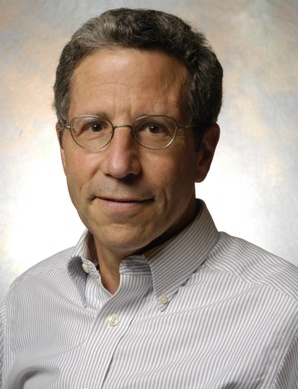
Nobel Prize-winning economist Eric Maskin will speak about “the question of presidential elections” at BMCC on Friday, May 9. Faculty, staff and students are encouraged to attend the event, which will be held at 11 a.m. in Theatre II.
Maskin, the Albert O. Hirschmann Professor of Social Science at the Institute for Advanced Study (IAS), was named a co-recipient of the 2007 Nobel Memorial Prize in Economic Sciences for “having laid the foundations of mechanism design theory.” He shared the $1.56 million award with Leonid Hurwicz, a professor at the University of Minnesota, and Roger Myerson of the University of Chicago.
His Field of Work
The mechanism design theory is a branch of economics study that begins with an outcome and tries to figure out how best to create a system to get there. In an interview with the New Jersey Jewish News, Maskin detailed the theory.
“Most of economics is an attempt to look at economic events and try to understand why they happened, and also to try to predict economic events in the future,” he told the News. “But what I do in mechanism design is, in a sense, the reverse of that.”
“We start with the outcome we want. Here’s a social goal we want to achieve. The question is, how can we build a mechanism — a procedure, a mechanism, an institution, a game — which will lead to this outcome?”
While Hurwicz first developed the theory, Maskin and Myerson refined and applied it to hot button modern issues like taxes and voting procedures.
“The essence of mechanism design is trying to reconcile some public good — like peace between Israel and the PLO, for example — and the private aspirations of the parties involved,” he said in the interview. “Mechanism design helps us to understand to what extent such reconciliation is possible.”
“One of the Great Minds”
Along with his work at the IAS, the New York City-born Maskin is also a visiting lecturer at Princeton University, located just one mile away from the IAS. Maskin resides with his family in the former New Jersey home of physicist Albert Einstein, who also worked at the IAS.
Princeton’s student newspaper, The Daily Princetonian, ran a story on Maskin soon after his win that shed some light on his legacy as a professor.
“He is, without a doubt, one of the best teachers I have ever had,” Glen Weyl told the Princetonian. Weyl expects to earn his Ph.D. in economics from Princeton next spring, and has taken two classes with Maskin, according to the paper.
“I have never seen anyone with his passion for and devotion to such abstract ideas. Even more importantly, Eric has a truly unique capacity for making the most complicated mathematical results not only comprehensible, but intuitive,” Weyl told the paper.
“One thing that really distinguishes Eric is how precise and careful he is. He would often pause for as much as 45 seconds in the middle of a lecture to make sure he said exactly what should be said to make the material transparent. He is really one of those professors that makes you think, ‘Wow, I am really watching one of the great minds in action.”
Along with his teaching duties, Maskin is a Fellow of the American Academy of Arts and Sciences, Econometric Society, and the European Economic Association. His current work includes comparing different electoral rules, researching the causes of inequality and studying coalition formation.
Before Princeton, Maskin taught at Harvard University for 15 years, where earlier he attained his undergraduate and graduate degrees, and his Ph.D.

